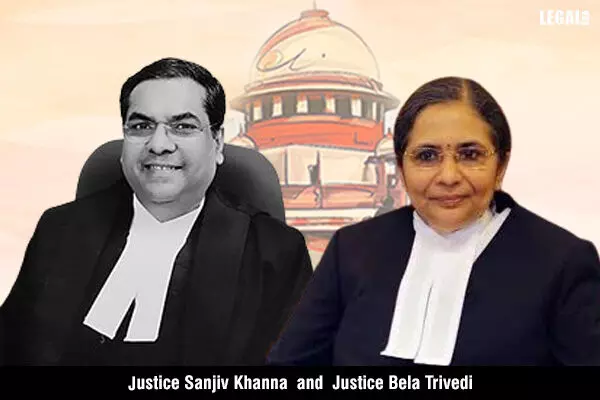- Home
- News
- Articles+
- Aerospace
- Artificial Intelligence
- Agriculture
- Alternate Dispute Resolution
- Arbitration & Mediation
- Banking and Finance
- Bankruptcy
- Book Review
- Bribery & Corruption
- Commercial Litigation
- Competition Law
- Conference Reports
- Consumer Products
- Contract
- Corporate Governance
- Corporate Law
- Covid-19
- Cryptocurrency
- Cybersecurity
- Data Protection
- Defence
- Digital Economy
- E-commerce
- Employment Law
- Energy and Natural Resources
- Entertainment and Sports Law
- Environmental Law
- Environmental, Social, and Governance
- Foreign Direct Investment
- Food and Beverage
- Gaming
- Health Care
- IBC Diaries
- In Focus
- Inclusion & Diversity
- Insurance Law
- Intellectual Property
- International Law
- IP & Tech Era
- Know the Law
- Labour Laws
- Law & Policy and Regulation
- Litigation
- Litigation Funding
- Manufacturing
- Mergers & Acquisitions
- NFTs
- Privacy
- Private Equity
- Project Finance
- Real Estate
- Risk and Compliance
- Student Corner
- Take On Board
- Tax
- Technology Media and Telecom
- Tributes
- Viewpoint
- Zoom In
- Law Firms
- In-House
- Rankings
- E-Magazine
- Legal Era TV
- Events
- Middle East
- Africa
- News
- Articles
- Aerospace
- Artificial Intelligence
- Agriculture
- Alternate Dispute Resolution
- Arbitration & Mediation
- Banking and Finance
- Bankruptcy
- Book Review
- Bribery & Corruption
- Commercial Litigation
- Competition Law
- Conference Reports
- Consumer Products
- Contract
- Corporate Governance
- Corporate Law
- Covid-19
- Cryptocurrency
- Cybersecurity
- Data Protection
- Defence
- Digital Economy
- E-commerce
- Employment Law
- Energy and Natural Resources
- Entertainment and Sports Law
- Environmental Law
- Environmental, Social, and Governance
- Foreign Direct Investment
- Food and Beverage
- Gaming
- Health Care
- IBC Diaries
- In Focus
- Inclusion & Diversity
- Insurance Law
- Intellectual Property
- International Law
- IP & Tech Era
- Know the Law
- Labour Laws
- Law & Policy and Regulation
- Litigation
- Litigation Funding
- Manufacturing
- Mergers & Acquisitions
- NFTs
- Privacy
- Private Equity
- Project Finance
- Real Estate
- Risk and Compliance
- Student Corner
- Take On Board
- Tax
- Technology Media and Telecom
- Tributes
- Viewpoint
- Zoom In
- Law Firms
- In-House
- Rankings
- E-Magazine
- Legal Era TV
- Events
- Middle East
- Africa
Supreme Court in Specific Performance Suit: If Time Isn’t Fixed for Performance, Limitation Period Runs When Plaintiff Receives Refusal Notice

Supreme Court in Specific Performance Suit: If Time Isn’t Fixed for Performance, Limitation Period Runs When Plaintiff Receives Refusal Notice
Sets aside the trial Court and High Court orders
The Supreme Court has held that when no time is fixed, the limitation period for a specific performance suit under Article 54 of the Limitation Act, 1963, will run from the date on which the plaintiff received the defendant’s refusal notice to perform the contract to determine the period of limitation.
(As per the first part of Article 54, the limitation period for filing a suit for specific performance is three years from the date fixed. However, according to the second part of Article 54, when no date is fixed, the limitation period is three years from the date when the plaintiff receives notice that the performance has been refused).
A Bench comprising Justice Sanjiv Khanna and Justice Bela Trivedi observed, “On the interpretation of Article 54 in the Pachanan Dhara and Others v. Monmatha Nath Maity case, it was held that for determining the applicability of the first or the second part, the Court would see whether any time was fixed for performance of the agreement to sell and if so, whether the suit was filed beyond the prescribed period unless a case for time extension or performance was pleaded or established.
The matter pertains to 1995 when the respondents filed a suit for specific performance based on an agreement for sale. It was defended by the appellant on several grounds, including the limitation period.
The trial Court directed specific performance, which was affirmed by the High Court. The appellant then approached the Apex Court.
The Top Court noted that the three-year limitation period to file a suit for specific performance commenced in 1991 when the third respondent filed a suit for injunction. It also observed that the replies sent by the appellant to the respondent were sufficient written notice of its refusal and unwillingness to perform the agreement. The Court held that in 1995, when the suit for specific performance was filed, it was already barred by limitation.
Thus, while setting aside the High Court decision, the Judges stated, “The appellants must succeed in this appeal since the suit for specific performance is clearly and without doubt barred by limitation.”



